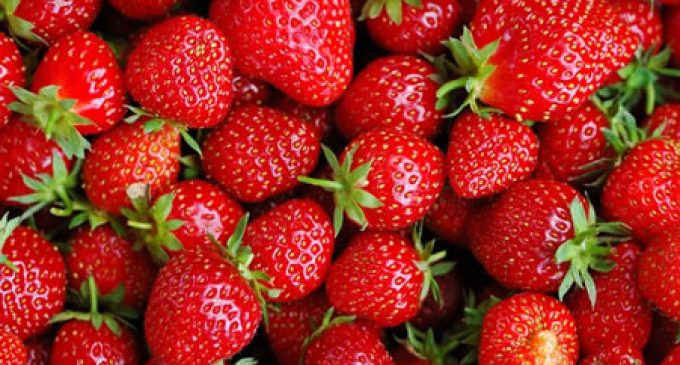New Research Confirms Importance of Ethylene Removal in Extending Strawberry Product Life

New research from Cranfield University and Writtle College, to be presented at the MQUIC 2013 supply chain conference this week, shows for the first time that ethylene removal extends the post-harvest life of strawberries – and proves that It’sFresh! ethylene-removal technology extends strawberry shelf-life by at least two days.
The two presentations at the VI International Conference on Managing Quality in Chains (at Cranfield University from 2-5 September) are based on research utilising the commercially-proven ethylene-removal technology used in It’sFresh! ethylene-removal pads.
PhD researchers at Cranfield will present ground-breaking new experimental results that explain why removing ethylene (using It’sFresh! technology) can extend the post-harvest life and quality of strawberries—full details will be announced at the conference.
Dr Chris Bishop of Writtle College will demonstrate how It’sFresh! ethylene removal pads extend the shelf-life of strawberries by two (or more) days, effectively compensating for temperature breaks in the fresh-produce supply chain
Simon Lee, chief Marketing officer at It’sFresh!, comments: “These independent studies, undertaken using our ethylene-removal technology, will reinforce what we and It’sFresh! customers already know from commercial experience: strawberries and other berries need effective ethylene management just as much as other types of fruit if they are to arrive at the consumer in top condition and avoid being wasted.
“We’re proud to be the subject of academic discussions at such a prestigious event – the UK’s first international postharvest conference for 25 years – and to support it as a Platinum sponsor. This is a fantastic opportunity to bring together leading scientists, policy makers and industry chiefs, to debate key issues for the fresh produce industry, such as quality, waste and how to meet future demand with the world’s growing population.”
Chris Bishop, Reader in Postharvest Technology at Writtle College and speaker at MQUIC 2013, comments: “The tests we have carried out showed unequivocally that It’sFresh! ethylene-removal technology extends product life by at least two or more days. This benefits everyone in the supply chain, from grower to consumer, by reducing waste and boosting consumers’ confidence that they will get full enjoyment and value from the produce they buy.”
Already used by M&S, Waitrose and others in the UK – also by Cencosud in Chile and with wider EU, US and APAC commercialisation well underway – It’sFresh! is helping to fight the war on fresh produce waste. Its simple pad, easily inserted into fresh produce packaging, traps and locks away ethylene gas (the fruit’s natural hormone, responsible for the premature ripening and decay of produce on its journey from growers to consumers).
Based on current commercial roll-out It’sFresh! typically saves around 50% of in-store waste and adds a minimum of two days’ product life, giving consumers greater freedom to buy and enjoy their five-a-day, ensuring they get full value for money.
Simon Lee concludes: “Our technology is a British innovation with the potential to make a global difference in the fresh produce industry. It’sFresh! has been shown to effectively remove ethylene throughout the whole supply chain, not only in strawberries and other berries, but also in tomatoes, avocados, stone fruit and pears. Its simplicity makes it readily applicable in both developed and developing world, and emerging markets.
“We hope that discussion of our technology at MQUIC 2013 will inspire others to develop solutions to help combat the many challenges faced by the food industry over the coming decades.”
Hosted by Cranfield University, MQUIC 2013 aims to provide a holistic supply-chain context for the many technical innovations that maintain fresh produce quality. It will provide a forum for leading academics, industrialists and students, to evaluate the entire fresh produce postharvest supply chain, covering topics such as reducing waste and resource mapping, consumer-centred technological advances and integrating supply chain management with novel postharvest technologies.

































